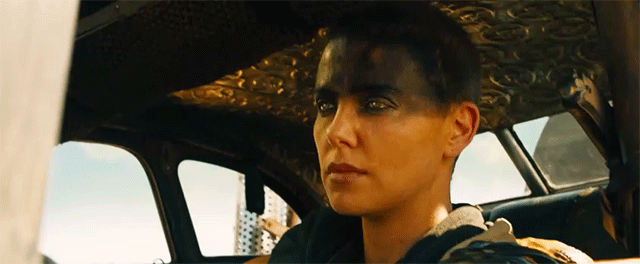
Hollywood spends a lot of time shilling superhero narratives at us, and, like many Americans, I consume these stories with gluttonous enthusiasm. Arrow is my favorite show. I have seen all of the Marvel universe movies (except Thor 2). And I am ready to adore CBS’ Supergirl in a completely unironic way. That being said, that doesn’t mean I’m not getting tired of validating this fallacy that the studio-described “superheroes” of the cinematic and television world are the heroes we should be looking up to. The heroes we need.
Sure, these superheroes have superpowers and they try their best at helping the world, but only so far as maintaining the current social order. And, for me, that’s a big problem. Because, in the current social order, most of the world’s population gets screwed. The current social order is structured to protect and support the elite few, and we’re taught to go along with that. Which is why, when The Hulk smashes up an entire city in Avengers 2, we’re still supposed to support this guy’s continued allowance of power. Dr. Banner’s self-loathing and good intentions are supposed to quell any larger concerns we might have against his “angry” side and the danger he might do. We are meant to support his continued place on The Avengers because, hey, his friends have his back and they’re trying their hardest. Besides, none of the characters with names were killed.
This isn’t a slight against Bruce Banner. As far as The Avengers go, he’s one of the more socially-critical and self-aware characters. He asks serious questions about what responsibility these superheroes have and questions his own capacity to enact improvement. Then again, he also lets Tony Stark create an all-powerful artificial intelligence not once, BUT TWICE. He is implicit in this system that gives incredible power (both through the creation of their characters and within the the fictional world itself) with very little oversight. Though the plot and characters may present doubts about the wisdom of giving The Avengers such power, the movie never seriously entertains the validity of the idea of stripping them of it. In coming out of Avengers 2, I couldn’t help but compare the movie I just saw to the story of our country’s real-life financial meltdown: An elite group of bros with awesome power and relatively no system of accountability screw up the world, then are allowed to continue on in the same manner with no repercussions for their actions. In the case of The Avengers, doing the exact same thing a second time — i.e. creating Vision to stop Ultron — actually works. Something tells me the financial system’s own efforts to prevent a second economic collapse by doing the exact same things with little legal restriction or accountability is not going to end as well. At least not for a majority of the world’s population.
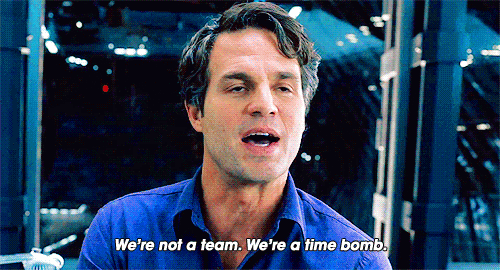
But this critique is less about the characters who make up The Avengers in general (though they are, admittedly, part of the problem), but rather the rigid world structure they must operate in. The lack of diversity (and, therefore, perspective) in this group of “heroes.” The pedestal we, as consumers — and perhaps “consumers” is the vital word here — put them on. The narrow field of problems and solutions they are forced to operate in. Like most “superheroes” on screen, The Avengers aren’t using their powers to solve the world’s most difficult, sustained, structurally-entrenched problems — hunger, war, human trafficking, poverty, etc. — they are using their superpowers to maintain the world’s fragile sense of order. At all costs. This order is usually externally represented in an alien attack or a gang of robots, but it exists nonetheless. Because, as long as the solution to Tony Stark’s creation of a private robot security force to protect the world is to create more of the same, then this will be a flawed narrative. At least for anyone critical about the world’s current systems of privilege.
Less and less, these narratives seem to care about the people who don’t get to be characters — aka most of us “normal” people. I mentioned that city of civilians destroyed by The Hulk, but what about the park full of visitors (many of whom are children) in Jurassic World? Jurassic World might not be a classic superhero narrative, but it’s another example of a classic blockbuster “hero” narrative that is trying to have its cake and eat it, too. It is a movie that is superficially critical of corporations and the problems they create, only to suggest that the solution is another corporate-created super-monster. Not people coming together to solve a problem (because this is America, and we must solve problems by ourselves). And not a solution for the hundreds of people who have already been killed (mostly off-camera, but in one inexplicably gratuitous example, in the most gruesome, extended way possible). We’re meant to consider this a happy ending, even though the people in power mostly failed us. Even though the “heroes” have taken zero accountability for the problems they were implicit in creating.
There are some recent blockbuster-like films that challenge this “hero” framework. Perhaps unsurprisingly, they often come from international creators. Snowpiercer and Mad Max: Fury Road tell stories of those fighting against the system, for the people. In these cinematic worlds, they are fighting against the world order movies like The Avengers uses its heroes to reinforce (or at least blatantly ignore in favor of protecting the Earth against alien attacks). They are trying to destroy the system that oppresses the disenfranchised — whether it be based on class, gender, race, or, in the best cases, an intersectionalist mash-up of many oppressed identities. These are the heroes I can get behind because, even if and when they fail, they are trying to address a problem that exists in the real world. More than that, they are looking past the symptoms of the problem to the structural injustices inherent in our world structure. And they are not just the privileged trying to understand and fix the problems of the oppressed. They are the oppressed, too.

Though I loved Snowpiercer, Fury Road is my preferred representation of what revolution can look like because it includes not only the oppressed, but the oppressors, recognizing that so many people have inside of them a mixture of both. Furiosa is a hero, but she has also been a villain. She is a victim and a victimizer. Though we don’t see it, she has presumably done terrible things to rise up the social ladder of this society and gain the respect and trust of Immortan Joe. But those actions do not totally define her, no more than her past as a child stolen from her home and forced into this system of oppression do. Then there is Nux, who begins the movie as an agent of the patriarchal destruction, only to find freedom in the new kind of society Max, Furiosa, The Wives, and Many Mothers have created. This small group represents a different way of moving through the world, and it doesn’t just save the oppressed of Immortan Joe’s social order; it saves many of the oppressors, too. It saves those who are implicit in the system, which so many of us are. This is why I see so much hope in Fury Road.
TV has a similarly narrow definition of the superhero narrative, with brief moments of resistance. In its first season, Arrow at least flirted with this idea that the social system of Starling City is failing its populace, even if that idea was never fully fleshed out or explored. One of my favorite Arrow sequences ever comes in Season 1, Episode 4 when Oliver is explaining to Diggle why he fights as a vigilante.
I’m giving you the chance, a chance to help other people’s families. Do you remember when the people in this city helped each other? They can’t do that anymore. Because a group of people — people like my father — they see nothing wrong with raising themselves up by stepping on other people’s throats. It does need to stop. And, if it’s not going to be the courts. And it’s not going to be the police. Then it’s gonna be me.
Arrow Season 3 had a lot of issues, but one of the biggest lapses in narrative excitement for me has been the way the show has completely eschewed this mission of social reform. Oliver’s mission to save the city from itself, to go after the corrupt elite, has become nothing more than an echo. Though this show has never done a stellar job exploring those themes, it has seemingly forgotten about them altogether in favor of the messes Oliver and his (mostly) elite compatriots have created themselves. As much as I don’t want to see Oliver join The League of Assassins or to have that same group save the city, these stakes have nothing to do with the city itself on any real level. Unlike Malcolm Merlyn’s classist vendetta against The Glades in Season 1, it is missing a socially-relevant element. Furthermore, the loss of Oliver’s fortune has seemingly affected his life or world view very little. Similarly, Felicity and Roy’s working class backgrounds — identities that could be interesting contrasts to Oliver’s own and to the corrupt elite of the city — are mostly ignored. In these ways, Arrow has failed this culture. (But, given that it isn’t chief TV’s job to contribute to culture, but rather make money for corporations, Arrow is a success.)
The latest heroic narrative to inspire me comes in USA’s new hacker drama, Mr. Robot. Though the show has only aired two episodes, it has already presented a hero unlike most we see on TV and film. Elliot is a cyber-security worker by day and a vigilante hacker by night. He uses his skill set to take down the very people and corporations who he is paid to protect during the day. In this way, he is a nuanced hero. Like most people, he doesn’t really have the option of opting out of the system — at least not yet. He needs to eat and pay rent and he has loved ones who also rely on the system to survive. But that doesn’t mean he is blind to the mind-numbing horror of it all.

At the end of Mr. Robot’s first episode, Elliot must decide if he wants to continue down a path that could end in the destruction of E Corp (or, as he calls it, Evil Corp) the conglomerate that hold most of the world’s debt. Such an endgame would no doubt end the world as we know it, but it would also free its people. As Elliot struggles to decide what he must do, he reads articles about “debt slavery” and the growing gap between the rich and the poor. These aren’t aliens from another realm. These are real-life problems. Though Elliot may struggle to maintain his sanity in the face of clinical depression and crippling social anxiety, he sees the world in a way Iron Man or Captain America will never be allowed to. They are too close to it. They are a part of it. Elliot, on the other hand, is a relative outsider. If, “in a mad world, only the mad are sane,” then maybe Elliot is one example of what our superheroes need to look like.

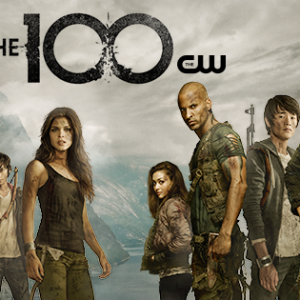
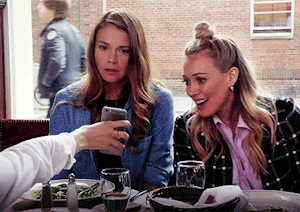
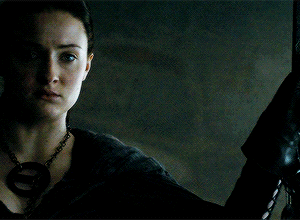
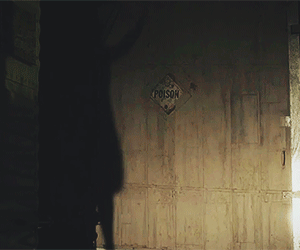
Leave a Reply